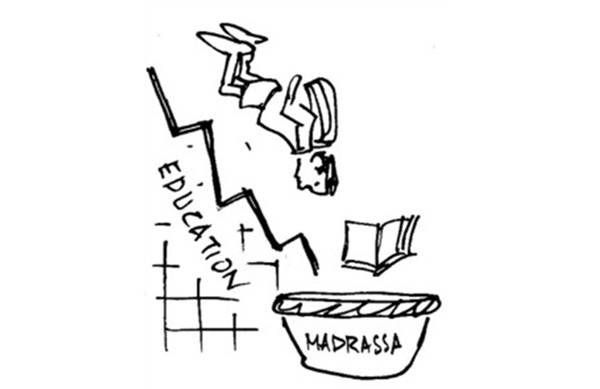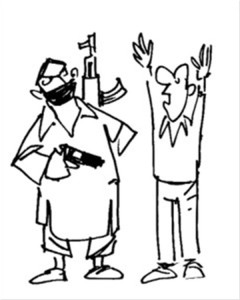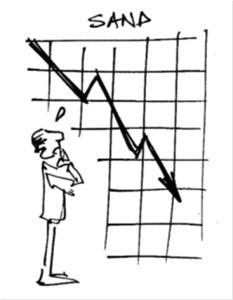
Back to school
Sir,
If Pakistan had continued to invest in state-sponsored education as it did until the 1960s, this country could have avoided the unregulated growth of madrassas, some of which are nurseries for brainwashing and recruiting innocent young people to join the ranks of terrorists with an agenda to destroy this country from within.
There was a time when the state invested in running government schools, colleges and universities of repute, which produced scientists like Professor Abdus Salam, and numerous doctors, engineers, sportsmen and women, philosophers, and economists, who helped develop the little infrastructure that we have today.
These were schools and colleges like the Central Model School Lahore, GC Lahore, and DJ Science College Karachi, where talented students who could not afford to get educated in private schools and colleges were admitted on merit, and went on to pay back to this country. Even missionary schools like St Anthony’s High School Lahore offered free quality education to members of their faith, while charging others an affordable fee like Rs 25 per month till the 1970s.
When the state began to ignore its obligation and adopted a penny wise pound foolish policy that included cutting funds to subsidized quality education, the country was deprived of valuable human resource.
Nations like Japan and Germany, with hardly any natural resources, have developed economically because of their investment in human resources, research and development, while simultaneously developing technology for defense.
If we had invested only three to four percent of our GDP on education, a large majority of poor people who are forced to send their children to nearby madrassas would have had the option of providing quality education to their children in state subsidized schools and colleges.
Instead, we have lost over $25 billion because of the menace of religious fanaticism that has destroyed our economy, our industry, and our defense.
Tariq Ali,
Lahore.

If guns are outlawed
Sir,
In Pakistan, laws are only for the law abiding. The government has been unable to protect its citizens against well-armed criminals who may strike anyone, anywhere and anytime with impunity. But its weapons policy has deprived law abiding citizens of quality arms and ammunition to help them exercise their right of self-defense.
Arms license fees are periodically increased to boost revenue, which means self-defense is heavily taxed and discouraged. As such, the policy has unwittingly improved the safety of the criminals.
Some drawing-room intellectuals express fears that if law-abiding citizens were permitted to carry arms, Pakistan would become lawless. What they don’t realize is that right now it is even worse.
When law abiding Americans were well armed with license-free weapons and could carry them anywhere for self-defense, they fought back against criminals and assisted the police. Even now, many Americans carry handguns for self-defense outside their homes. “If guns are outlawed,” says a popular NRA slogan, “only outlaws will have guns.”
At present, there are at least 20 times as many illegal arms in Pakistan than licensed ones. That is why it would be better for the government to go after armed criminals, rather than arms.
I humbly appeal to the government to kindly organize the armed law-abiding citizens to assist the security forces in locating and arresting criminals. The security forces cannot do it alone, as proved so far despite countless sacrifices.
M Akram Niazi,
Rawalpindi.

Primary lessons
Sir,
The basic problem with Pakistan is that no clear long-term policy has ever been implemented to tackle the ever increasing gap in education amongst economic classes. By gap, I refer specifically to the quality of educational provisioning and how it differs as you climb up the socio-economic ladder.
A good place to start is Tariq Rahman’s Denizens of the Alien world which broke down the basic primary educational structure into four main categories: elitist schools, public schools, madrassas and the army managed cadet colleges. The Annual Status of Education Report (2012) has expounded on these inequalities by dividing the population into four quartiles namely poorest, poorer, richer and richest. The results exhibited that the lowest household rung had the highest percentage of children enrolled in government schools at 91% and only 9% in private-schools. The top quartile, on the contrary, had an alarming 40% enrolled in private schools and 60% in government schools. The report goes on to claim that a high correlation is found between wealth and enrollment in private schools, quite in line with Rahman’s analysis. Not so divergently, a high correlation is also found between learning levels (of Mathematics, English and Reading) and wealth.
Even if we ignore that meager 55% national literacy rate, even the ones that acquire primary schooling have very different futures ahead: some move on to elite secondary schools whilst most at the bottom learn nothing substantial from public schools. Combine the poor quality of learning, high indirect cost in form of lost child-labor wages and meager private returns from state-funded public education, the result you would get is a high-drop-out rate at primary level. National literacy is thus itself connected with the success of public schools.
According to the Pakistan’s federal budget 2013-2014, the entire amount allocated to education is $0.58 billion (roughly 7% of what United States spends on pre-primary education alone). Furthermore, the difference in the quality and size of the public program can be judged by the fact that in the year 2009-2010, 34 million children attended 98,917 public elementary schools across the United States compared to only 12 million children who attended 138,000 public primary schools across Pakistan.
Though the count of public schools in Pakistan may exceed over 130,000 across the four provinces, there is no guarantee whether these schools have adequate provisioning of electricity and water or whether they exist at all.
Building schools is not enough if they lack the infrastructure or are displaced from the population they cater to. Educational may be a constitutionally endowed right but the rural poor, the few who do, have to walk kilometers to schools with no bathroom facilities and teachers who are not trained or motivated enough to pass on their limited knowledge.
Khawaja Ali Zubair,
Lahore.
Wakeup call
Sir,
When will we realize that our country is in a state of war? It is a situation of emergency. The Taliban have now started dictating us, on TV and through TV anchors. Their strategy has changed. They are trying to create fear among the people of Pakistan.
The talks offer by the Taliban and a powerful bomb blast close to the GHQ at the same time is a clear message that they are not serious. They are leaving us with no option but to fight. Then shouldn’t we fight? We must leave behind political bickering, and join hands to differentiate between Pakistanism and Talibanism, and strengthen the hands of our armed forces, security institutions and law enforcement agencies to be fully able to fight out terrorists. The armed forces have fought terrorists whenever they have been tasked to, but who is fighting the ideology of Taliban?
Most of us are still wandering in wilderness as to who is right and who is wrong. That is mostly because our governments have not performed well. They have not been able to bring back effective governance to the post-operation areas. The media is not sensing the seriousness of the situation. The state and the government machinery are not doing their due, to train and educate people in civil defense.
Instead of talking about what is happening in Syria or Libya, our educated lot needs to start worrying about what is happening in Pakistan. We must wake up and save Pakistan from terrorists, extremists, sectarian militants, and the corrupt ruling elite.
Abid Aleem,
Islamabad.

Built on sand
Sir,
Sand is a major component in a large number of everyday products, even more than crude oil. It is used for the production of concrete and plaster, comestible goods, cosmetics, and cleaning agents, as well as electronics such as computers, mobile phones and credit cards.
There has been a major increase in the demand for sand because of a worldwide building boom, due to the increase in population and the economic development in newly industrializing countries such as India, China and Thailand. Two thirds of all buildings in the world are built with concrete, and two thirds of that concrete is sand. About 200 tons of sand is required for a middle sized house, 30,000 tons for every kilometer of a motorway, and 12 million tons for a nuclear power plant.
The demand for sand is about 40 million tons a year, of which 15 million tons are taken out of nature. That is an incredible amount. In the western world, every inhabitant consumes 20 kg sand each day.
Ironically the Arab countries, such as Dubai, are the main importers of sand, although they are surrounded by a plenty of it. That is because desert sand cannot be used in the concrete industry. Dubai, for instance, imports millions of tons of sand from Australia for its huge skyscrapers and for the newly built apartments on the newly built islands. The English saying “He can even sell sand to the Arabs” has lost its irony.
The cultivation of the amount of sand required today is not possible without massive environmental damage. The dragging of rivers has led to flooding, so the sand industry has turned to the oceans. Thousands of ships go through the seas every day to pump out the sand with huge pipes. At the same time, every living being on the ocean floor is destroyed – coral reeves are shattered and animals crushed. That disturbs the whole biosphere, because the little animals on the ocean floor are food for the bigger fish.
The loss is dramatic. Fishermen are complaining that there is no more fish left in the areas where sand is mined. When the sand is taken out, it leaves a large crater, which is naturally filled up by the coast sand over time. Sometimes that makes whole islands disappear, especially in countries like Indonesia and Maldives. Thousands of island inhabitants saw their homes disappearing in the open sea.
In places where the sand does not disappear, it is stolen. Morocco is one example of a country where where unbelievable things are taking place. Hundreds of mafia workers are stealing at the beaches until only the rock remains. Who had ever thought people could steal an entire beach. The irony is that this sand is used in the construction of huge hotels, although tourists actually visit those places to see the beaches. About 45% of beaches in Morocco and Senegal are being stolen by the mafia at the moment.
Since the digging of sand is officially forbidden by law because of environmental issues, the market is full of criminal groups in India, Indonesia and Cambodia. Partly with divers and trawls, they steal the sand without caring about the animals and nature, and the crime has reached the stage where they do not even stop short of bribery or murder. These mafias have influence of major construction companies, and their roots can be found in the highest government seats.
Singapore is one of the fastest emerging cities these days. They need sand to make more land to build on. Apparently, the sand usage is tremendous, and the awareness at its minimum.
Are there any alternatives to sand? Wood can be taken into consideration, especially the fast growing bamboo. Recycled glass can also be used instead of sand. But there is little will to switch to alternatives. So far, the price of sand is very low, and the concrete lobby is very powerful. Like oil, sand is coming to a virtual end before people start thinking of alternatives.
The treasures of nature appear to be inexhaustible, but the only thing truly inexhaustible is our greed. Our current lifestyle does not have a solid foundation. It is built on sand.
Dua Wahab Khan,
Bad Homburg.
Happy New Year
Sir,
The celebrations of 2017 began worldwide much like they do every year. Another year has passed us by, leaving us with both happy and sad memories. The New Year’s sun is rising with a message of peace, prosperity, love and happiness in the homeland, Pakistan. There is no doubt that peace is a first step towards development. The daily increase in index points of the stock exchange and other economic indicators are revealing to us the healthy and progressive economy of Pakistan. Internal and foreign investors are taking keen interest in investing and boosting the economy.
The dream of the Pak-China Economic Corridor (CPEC) is becoming a reality. There is a dire need for the whole nation to act according to the example set by the Quaid-e-Azam, who said, “Work, work and work.”
Mansoor Ahmed,
Faisalabad.

Cyber warfare
Sir,
Back in 2001, when I was in Germany’s prestigious Tubingen University, I met a large number of Indian students who were employed as computer experts by German companies. I also noticed that there were no Hindu asylum seekers (although there were some people from the Sikh community who have been facing discrimination back in India). Indian students were very confident, and that was because of their pride as well as their performance. Credit goes to Indian policymakers for introducing an information technology policy early enough to enter the 21st Century computer age with broad national objectives in mind.
India has computerized almost all its departments, especially those related to security and war. It has developed a cybercrimes policy that is being followed by its intelligence agencies for surveillance and counterintelligence etc. There are reports that Edward Snowden made a secret visit to India nearly three years before the leaks he became famous for, where he spent days taking courses in ethical hacking and programming at a local professional school, where he learned advanced techniques for breaking into computer systems and exploiting flaws in software. Snowden also learned about methods to reverse-engineer the world’s most popular kits for committing widespread online crime. This shows how much India has advanced itself in this field.
In Pakistan, so far we are still trying to familiarize ourselves with laptops and other electronic gadgets. This lack of interest and expertise on our part has made us prone to cyber-attacks, media onslaughts and internet intrusions. Over a decade ago, the US had installed a major-general as the head of the Cyber Warfare branch of its army, followed by India. Pakistan Army lags behind in this regard, and that is a serious cause of concern. Our armed forces need to be upgraded, modernized, sophisticated and equipped to cope with the emerging challenges. Acquiring latest technology and its know-how is a must. Although I do not underestimate our people’s expertise in computers and IT, there is a great scope for enhancing this knowledge and expanding it to all areas of the national mainstream.
Alya Alvi,
Rawalpindi.

